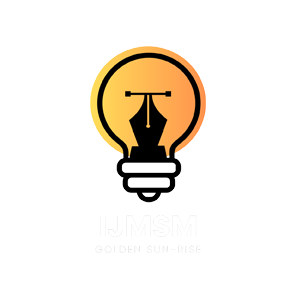Author Guidelines
Publication Ethics
Academic journals' legitimacy, integrity, and quality depend heavily on publication ethics. IJMSM offers a structure for writers, Editors, and Reviewers to follow in order to guarantee the validity and dependability of published research. IJMSM has an Internal Publication Ethics Committee (IPEC) that advises Editors and publishers on all aspects of publication ethics, including how to handle research and publication misconduct issues.
1. Authorship and Contributorship:
The study and article should have benefited significantly from the contributions of all writers.
The authors should accurately list all collaborators and their contributions to the study.
Avoid ghostwriting and guest authoring, in which a person who did not participate is credited as an author.
2. Originality and Plagiarism:
Authors are required to make sure that their work is original and to correctly credit and reference earlier studies.
Plagiarism, including self-plagiarism, is unacceptable.
3. Conflict of Interest:
Any financial or non-financial conflicts of interest affecting an author's study must be disclosed.
Additionally, Editors and Reviewers must disclose any potential conflicts of interest and, if required, abstain from handling submissions.
4. Data and Reproducibility:
a. For their study to be replicated, authors should make the data and techniques they used available.
b. Falsification or fabrication of data is unethical.
5. Peer Review:
a. Editors should make sure the peer-reviewing procedure is impartial and fair.
b. Reviewers should offer timely, accurate, and helpful criticism.
c. The manuscript review process should be conducted in confidence.
6. Ethical Treatment of Human and Animal Subjects:
a. Human subject research must adhere to ethical guidelines and have the necessary clearances.
b. Ethical standards should be followed, and the required approvals should be obtained for animal experiments.
7. Publication and Author Responsibilities:
a. Authors should only submit their work to one publication at a time, withdrawing their submissions from other journals while their work is being reviewed.
b. It is crucial to communicate study techniques and findings openly and honestly.
c. Corrections or retractions should be made if mistakes are found after a paper has been published.
8. Citation and Acknowledgment:
a. Proper citation of prior work is essential.
b. Acknowledge the contributions of individuals or organizations that supported the research.
7. Editorial Independence:
a. Editors should make decisions based on the quality and validity of the research, not on personal or commercial interests.
8. Plagiarism Detection:
a. Editors should employ plagiarism detection technologies to find possible instances of plagiarism in submitted works.
9. Confidentiality:
a. Editors and Reviewers are expected to keep the review process's details private.
b. Without authorization, manuscripts must not be shared or discussed.
10. Handling Ethical Violations:
a. Journals have to have procedures in place for looking into and dealing with ethical transgressions.
b. When ethical transgressions are discovered, retract or rectify publications.
 IJMSM
IJMSM